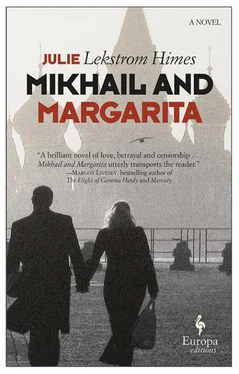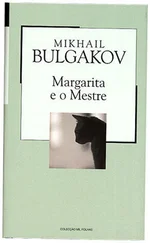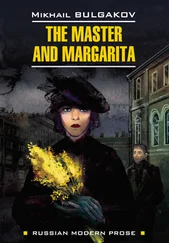At Mandelstam’s apartment, the door was ajar and he entered. The lamps were extinguished. Grey light filtered from a window; beneath was a bookcase and nearby an upholstered chair and sofa. The light reached no further. Before him, in the semidarkness, shadowy, unrecognizable forms seemed strewn about the floor. He hesitated.
Across, a checked curtain was pushed aside and Mandelstam’s wife emerged from a shallow hallway. She was thin and pale; her hair was short and very dark, cut at an angle across her face. She wore a loose cotton dress. She gazed past Bulgakov as if he was of no more consequence than a piece of furniture set out of place. She moved toward the window and knelt on the floor.
They’d known each other for years; he considered she was in shock.
“Nadya?” He stumbled against the leg of an overturned chair, then set it upright. Its seat and armrest were missing. Objects around him seemed to emerge from the darkness. The floor was covered with books and papers; a large bookcase was upended and broken shelves hung loose. The fabled sideboard laid across the floor in a diagonal; broken glass glimmered dimly from the carpet. A desk chair sat across the room, upside down. Its legs turned slowly about its stem, as if its occupant had recently and quite absurdly departed.
Paper was everywhere. He picked up one. Notes in Mandelstam’s hand.
“I can’t find it,” she said. “I know it’s here. Here—” She pointed, between the floorboards. “A pin?” As if he was too dense to understand. “Do you know how hard it is to lay your hands on pins?” She looked up at him. “No, you wouldn’t.” Her expression was unreadable in the light.
He couldn’t make sense of her tone; it bordered on contempt as though some part of this was his doing.
He turned on a lamp. In its light the devastation was complete. “Did they find what they were looking for?” he asked.
She shook her head. She sat back on her heels, her hands on her thighs, as if to say, damn the pin . They could live in a world without pins, for all her concern.
“He offered to write it out for them,” she said. “So that even with their myopic vision, they could read it.” Those were his words, of course. As she spoke, her anger went to incredulity then to sorrow. As if she couldn’t believe she was saying these things; that they could even be said.
She crawled into the chair near the window. Through the wall came the faint sound of a man singing a popular tune. Bulgakov sat on the sofa near her. He picked up a displaced toy that lay at his feet; three carved horses wired together crudely and arranged on a small set of wheels. He moved one of them and the others bobbled up and down on their own, one after the other, as if galloping across the steppe. Bulgakov looked up and found she was watching him.
“Osip’s?” he asked.
“It was mine,” she said flatly.
She made no movement to take it, as if it’d belonged to a different and no longer relevant version of herself, and he set it on the floor again. A postcard stuck out from under the skirt of the sofa and he retrieved it. It was of the coastline of Yalta. It’d been written by Osip to Nadya’s parents. He recognized the long looping strokes. The postmark was 1924.
He imagined a 1924 version of Osip. This one smiled square to the camera, his hands on his hips as if challenging it, with exuberant hair and teeth.
Nadya took the card from him.
“That was from our honeymoon,” she said. “Well, we called it that.” She studied the picture. “We stayed—there,” and she pointed to a small jut of land, east of the city. “The place was terrible. Let by an older couple. I wouldn’t let Osip sit on the bed until I’d boiled the sheets.” She smiled. “There was a palm tree outside our door. Every morning, he’d kiss it. So silly. He’d do things to make me laugh. He was a wonderful man.”
Then her face changed. “They’re going to kill him, aren’t they?” As if her utterance had set their decision. She began to cry.
“No, they’re not.” He covered her hand with his. “He’s important, an important writer.” He smiled to show how ridiculous this would be. “They wouldn’t dare. I can’t imagine it.” He tried to appear convinced.
She wiped her face with her hands, then touched her hair. “What should we do?”
At first he was uncertain what she meant; as though their sitting together further endangered her husband. Then he understood: what could they do?
“Go to Bukharin,” he said. “Tell him of—this.” He didn’t know what he would say, but it was something she could do, and immediately she nodded.
“He got us tickets to the Kirov last June. We didn’t ask. They just came. I told him—Osip, of course. Well, it was nice, I told him. It was one nice thing. He could have given them to his housekeeper. The very least we could do was go.”
The apartment door behind her opened and closed. Someone had entered. “Is it Anna?” she asked.
Although the light was dim, he could see it was Margarita. Why had she come?
Nadya turned to look, then got up abruptly and went to the checked curtain. He stood as she left. On the other side, in the bedroom, clothes and books had been tossed about; a terrible gash cut through a bare and overturned mattress. All disappeared as the curtain fell.
The room felt oddly crowded with now just the two of them. She nodded, as though acknowledging their recent encounter at the restaurant. He wondered if she was surprised to see him. He could only think of all of the reasons why she shouldn’t have come. He hesitated to speak lest he start enumerating them for her.
She didn’t seem surprised by the wreckage. Her hair was pulled back in a loose knot at the base of her neck. She wore trousers and a man’s shirt, cinched at the waist. She lifted one hand for balance as she stepped through the remains of the sideboard.
He wondered whose shirt.
“Careful,” he said. “There is glass.”
She picked up some loose pages near her feet, then sat in the chair as Nadya had. In the better light he could see she’d been crying.
There was a noise from the bedroom but the curtain was still. He sat again.
“I’m surprised you’re here,” he said. It wasn’t meant to be unkind.
He was nervous of Nadya’s reaction.
Margarita looked over her shoulder as well.
She’d have known a Mandelstam different from his, perhaps even different from Nadya’s. Seeing her face in this light he tried to imagine how the poet’s hands would have touched her. Would he have used gestures different than those practiced on a wife of ten years?
But she was speaking. “Were you here when they came?”
“They were here when we got back,” he said.
Perhaps she was wondering if she could have prevented these events. Would things have gone differently had she chosen different words? Worn a different dress? Would he have come home with her instead? Bulgakov imagined all of this as he watched her thoughts work, as his own worked in the same manner, searching for his own culpability. Suppose he had been a better friend? Had been attentive of Mandelstam’s growing discontent? Could he have dissuaded him from taking action? There must have been something he could have done. Better to have been at fault than to have been powerless.
It occurred to him that in sitting with her, he was in some way colluding with the mistress. Nadya, he knew, would view it thusly. He could check on her; the other room was now quiet. He could begin to tidy the place. He could leave Margarita to her own accounting.
He continued to sit with her. He didn’t know what to say.
“I’m sorry for the way he behaved in the restaurant,” he said. He realized how odd it sounded. Was Nadya listening? He lowered his voice.
Читать дальше












